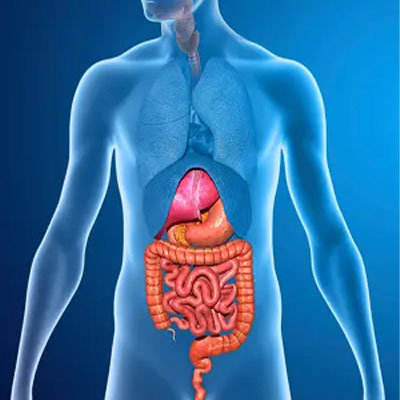Gastrointestinal
The gastrointestinal (GI) system, often referred to as the digestive system, is a complex and vital network of organs responsible for the ingestion, digestion, absorption, and elimination of food. Comprising organs such as the mouth, esophagus, stomach, small intestine, large intestine, liver, gallbladder, and pancreas, the GI system plays a crucial role in maintaining our overall health and well-being.
The intricacies of the gastrointestinal system is essential for maintaining digestive health. Lifestyle choices, a balanced diet, and regular medical check-ups contribute to the prevention and management of gastrointestinal disorders, ensuring optimal functioning of this vital system for overall well-being.

Anatomy of the Gastrointestinal System:
- Mouth and Esophagus:
- The digestive process begins in the mouth with the mechanical breakdown of food through chewing and the chemical breakdown by enzymes present in saliva.
- The esophagus serves as a conduit, transporting the chewed food from the mouth to the stomach through a coordinated process of muscle contractions known as peristalsis.
- Stomach:
- The stomach acts as a temporary storage site for food and secretes gastric juices containing enzymes and acids that further break down food into a semi-liquid substance called chyme.
- Small Intestine:
- The majority of nutrient absorption occurs in the small intestine, which is divided into three segments: the duodenum, jejunum, and ileum.
- Specialized structures called villi and microvilli increase the surface area for absorption, allowing nutrients to be transported into the bloodstream.
- Large Intestine:
- The large intestine, or colon, absorbs water and electrolytes, forming and compacting feces for elimination.
- Beneficial bacteria in the colon play a crucial role in fermenting undigested food and producing certain vitamins.
- Liver, Gallbladder, and Pancreas:
- The liver produces bile, which is stored in the gallbladder and released into the small intestine to aid in the digestion of fats.
- The pancreas secretes digestive enzymes and hormones, such as insulin, that regulate blood sugar levels.
